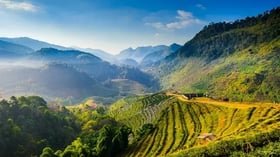Navi Mumbai: Navi Mumbai based environmentalists have been actively participating in voicing out their suggestions and objections to the state government’s proposal to exclude 388 villages from the list of Ecologically Sensitive Areas in the Western Ghats of Maharashtra.
The draft notification proposing the removal of the villages which was issued on July 31, has a deadline of September 27 for the citizens to give suggestions and objections. The city activists have highlighted the long-term consequences to the Ministry of Environment, Forests and Climate change (MOEF &CC). They have appealed to the Ministry to not go by the State’s proposal. The activists have emphasized that the long-term consequences will not be suffered just by the village but the surrounding areas as well.
Of these 388 villages which have been proposed to exclude from the list of Ecologically Sensitive Areas, 323 of them are located in the Konkan region. Of these villages, 55 villages of which 47 are in Raigad, six in Pune and one each in Sindhudurg and Ratnagiri- have been proposed for the development of Industrial estates and 25 villages which includes 23 in Sindhudurg, two in Ratnagiri – are proposed for the development of Industrial special zones, and Industrial Projects. “The exclusion of the villages will not just impact the environment but also displace the local communities and threaten their livelihoods,” said Nerul based activist Sunil Agarwal.
The activists who have approached the ministry through mails, have suggested to give due consideration to the rich biodiversity of the villages. “There are numerous studies by environmental experts and botanists that have highlighted the damning effect on the environment. In southern states like Kerala excessive development work in ecologically sensitive areas is what has resulted in regular flooding. The proposed exclusion will exacerbate issues such as deforestation, water pollution, and loss of biodiversity,” said Agarwal.




